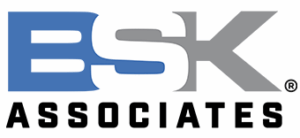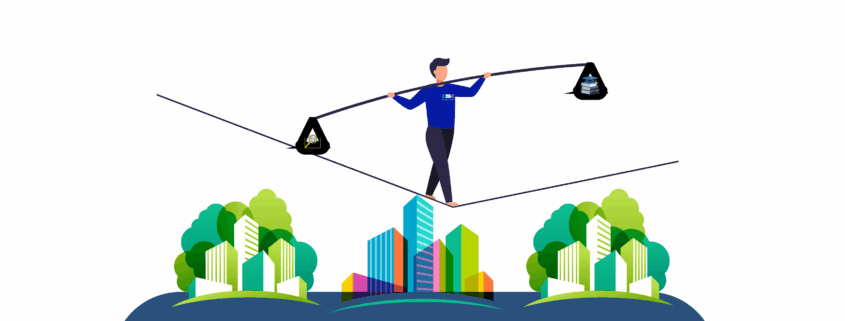How to Propose Projects with Confidence: Simple Steps to Stop Underselling Your Skills
Proposing Work Without Underselling Your Expertise
Let’s be honest—writing proposals as a Geoprofessional can sometimes feel like a special form of torture. You’re essentially saying, “Please pick me! But also, here’s exactly how much it’s going to cost you, and yes, I know my competitor may have quoted 20% less.” It’s somewhat akin to asking someone to marry you while simultaneously negotiating the prenup.
But here’s the thing: the proposal process doesn’t have to be a dance of desperation or one that cuts into a reasonable profit margin. With the right approach, you can waltz your way to winning work while maintaining a reasonable fee while doing it. Revolutionary concept, right?
Know Your Worth (And Then Add Your Margin)
First things first Geoprofessionals: we must stop treating our expertise like a commodity. You didn’t spend years learning the difference between clay and silt just to compete solely on price. Your geological knowledge, project experience, and that uncanny ability to spot potential problems before they become expensive disasters? That’s valuable stuff. Not to mention the amazing person you are and the way you focus on client relationships! That’s worth something too!
When pricing your services, remember that clients aren’t just buying your time—they’re buying peace of mind, risk mitigation, and the confidence that comes from working with someone who is knowledgeable and is serving as part of their team. That’s worth more than the rock-bottom bidder who promises everything for nothing and delivers an inferior product and client experience.
The Art of Strategic Storytelling
Every proposal should tell a story, and that story should be: “Here’s why we’re the heroes you need for this particular project.” Generic proposals are like elevator music—forgettable and even slightly annoying. Instead, show that you actually read their RFP (shocking, we know), are familiar with projects like they are soliciting services for, and understand their specific challenges.
Did they mention tight deadlines? Talk about your project management approach and your team’s ability to deliver. Are they worried about regulatory compliance? Share that story about how you resolved a unique permitting situation. Concerned about budget overruns? Highlight your approach to budget management, transparency and collaboration with project scoping and estimating, and your track record of staying on or under budget.
The Goldilocks Principle of Proposal Length
Your proposal should be detailed enough to be useful, but not so complex that it overwhelms the reader. Nobody wants to read a novel about why you’re qualified to do a Phase I ESA. On the other hand, a two-page proposal for a complex remediation project is likely too brief and suggests that either you don’t fully understand the scope or you’re planning some creative scope creep later.
Aim for that middle ground where you provide enough detail to demonstrate competence without putting the reader to sleep. Of course, be sure to cover all the necessary bases to avoid unnecessary risk or exposure. However, speaking in terms that anyone can understand and keeping the proposal concise by preventing the client from having to read 47 pages about soil sampling methodologies will be considered a valuable and welcomed approach.
Differentiation That Actually Matters
Saying you provide “quality work” and “excellent customer service” is like saying you breathe oxygen—it’s expected, not something that differentiates you. When a client contacts anyone who provides our services they expect a base level of technical expertise and customer service that should be standard for any consultant. So, focus on what makes you truly different. Maybe you’re the only firm in town with experience in a wide range of disciplines that are needed for a project. Perhaps you have a particularly efficient mobilization process that saves your clients money. Or maybe you’re just really, really good at explaining complex geological concepts in terms that non-geologists can understand.
Whatever it is, make it specific and make it relevant to them AND their project. “We’re different because we care” isn’t compelling. “We’re different because we’re the only firm in the region with a full-service Geotechnical Engineering and Geology team with a 98% first-pass state regulatory approval rate” is.
The Follow-Up That Doesn’t Feel Stalker-ish
Submitting your proposal and then never following up is like putting a bat and ball into a kid’s hands and never teaching them how to play the game of baseball. A thoughtful plan for follow-up shows you’re engaged and professional, not desperate. Send a brief email confirming receipt, offer to answer questions, and if appropriate, maybe share a relevant article or case study that supports what you have proposed.
The key is emphasizing your interest in being part of the client’s team. Being helpful, not pushy. “I saw this article about similar contamination issues and thought it might be relevant to your project,” is professional engagement. “Have you made a decision yet? How about now? Now?” is how you get blocked on LinkedIn.
When to Walk Away (And How to Do It Gracefully)
Sometimes the best business decision is knowing when not to bid. If a project is clearly under-scoped, the timeline is impossible, or the client is shopping purely on price for work that requires significant expertise, it might be time to decline and point yourself in another direction politely. This isn’t giving up—it’s strategic resource allocation that is truly valuable to you, your team, and your company.
A departure can be made gracefully by saying “This project doesn’t align with our current capacity, but we’d love to be considered for future opportunities,” which maintains relationships while protecting your sanity and profitability. Plus, clients remember firms that are honest about their limitations, and that can lead to better-matched opportunities down the road. There is truly nothing worse than overpromising and underdelivering, which can be a real consequence of accepting poor commissions.
The Long Game
Remember, every proposal is part of building your and your company’s reputation in the industry. Even when you don’t win, you want to be remembered as the firm that submitted a thoughtful, professional response that demonstrated real understanding of the project. Today’s runner-up can be tomorrow’s sole-source contractor. Sometimes those losses can even create opportunities to build a relationship with the client through a quality debrief! So, regardless of the outcome, be confident in your approach and provide a quality proposal to your client.
The goal isn’t to win every project—it’s to win the right projects at the right price with clients who value what you bring to the table. The product will be an incredibly valuable client base and book of business that will result in a much healthier business and significantly less stress.
Now go forth and propose with confidence. Your expertise is worth it, your clients need it, and your profit margins (and business managers) will thank you for it.

Tim Rodriguez
Looking to learn more about BSK Associates Geoprofessional and Analytical Services, check our website and connect with us to see how we can help you. www.bskassociates.com




